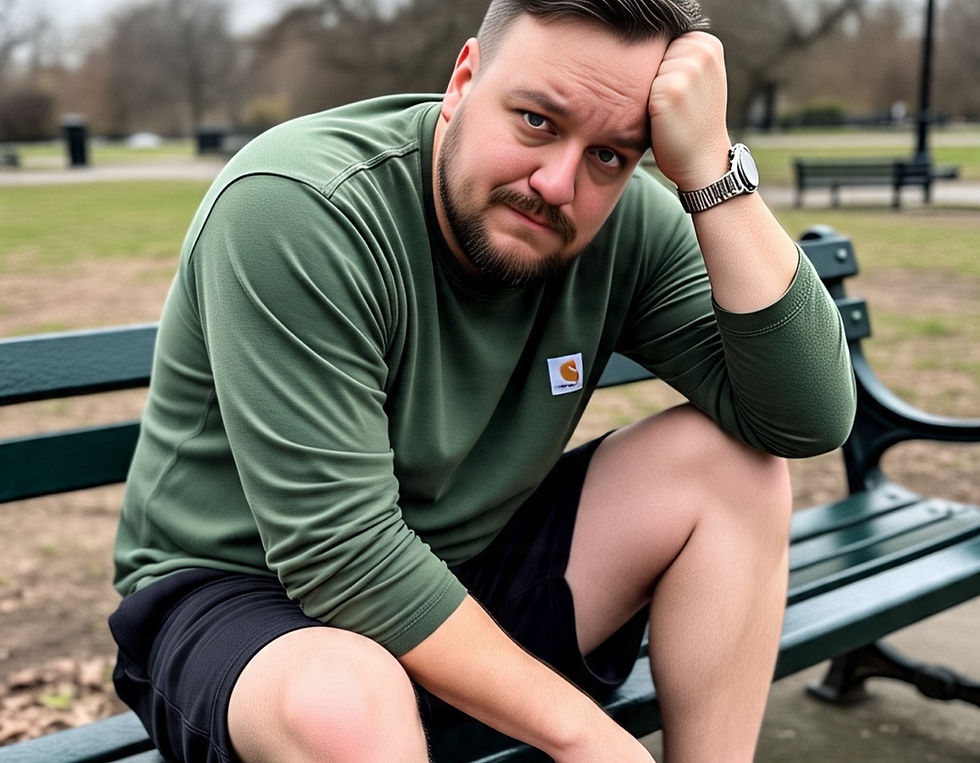To the Castle Walls!!
- Mitchell O'Brien

- Apr 26, 2024
- 3 min read

My last blog was about overwhelming myself, some of the symptoms of this, and things I did to get myself back on track. Today I'd like to talk about boundaries. This whole series of blogs is under the ♪umbrella..ella..ella..ay..ay..ay..under the umbrella♪ of self-awareness. Boundaries are a topic that requires a degree of self-awareness to cultivate and defend. Sometimes defending my boundaries is reminiscent of fighting a hoard of selfish barbarians off the castle walls I've had to construct around myself to protect the village of stable mental health I've been structuring over the last few years. At times, fighting these defensive battles can be as exhausting as the overwhelm that creeps in from not having boundaries in the first place.
•
In my experience, most of these battles are caused by other people's expectations being placed on us. Now, this can be because we over-promise when people ask us to do things, please see the definition of "people pleasing" here. But it can also be from other people, nonconsensually, placing expectations on us that don't support our highest well-being or life in recovery. This, in the beginning, can be very difficult. It really does take a lot of boundary defense, advocating for yourself, and self-awareness. Many of us had been living our lives in the opposite direction, with people-pleasing over-commitment or even conflict avoidance behaviors. To keep from turning ourselves into "dry drunks", digging into the behaviors and habits that guided us into making the addictive choices (that eventually became unmanageable) is crucial to structuring that stable village of mental health I mentioned before.
“Our boundaries define our personal space – and we need to be sovereign there in order to be able to step into our full power and potential.” —Jessica Moore
There is no exact science to putting this structure, worthy of healthy boundaries, together. Enter the people, places, and things that can be so important to success in not only early recovery, but attaining a life in long-term recovery as well. Many of us aren't able to completely cut out all of the boundary pushers in our lives. This is where making a "toolbox"/support system becomes incredibly important. Some things we need in our toolboxes are supportive friends, sponsors, home group meetings we feel safe and comfortable with, peer recovery coaches, and therapists/counselors. Get as many solid connections in your boat as possible so when life's stressors start flowing over the edges you have as many people to help bail and keep you afloat. Having these in your life can mean a world of difference.
•
You'll notice that once you start to get this support system in place your boundaries get easier to defend. Once you get some distance from the boundary pushers your recovery capital starts to go up and your mental health gets easier to stabilize. The things I've shared with you today have directly been a part of my own journey. It does take effort. It's not easy to face the pain and shame from our pasts that are required to make these changes in our lives. But, in my experience, they do seem to be required in this process one way or another. The change it brings is so worth it.
As always, 217 Recovery is here to add to your list of recovery support and I am always here to help guide anyone through the valleys of early recovery from the log books of my personal experience.
Until next time.









Comments